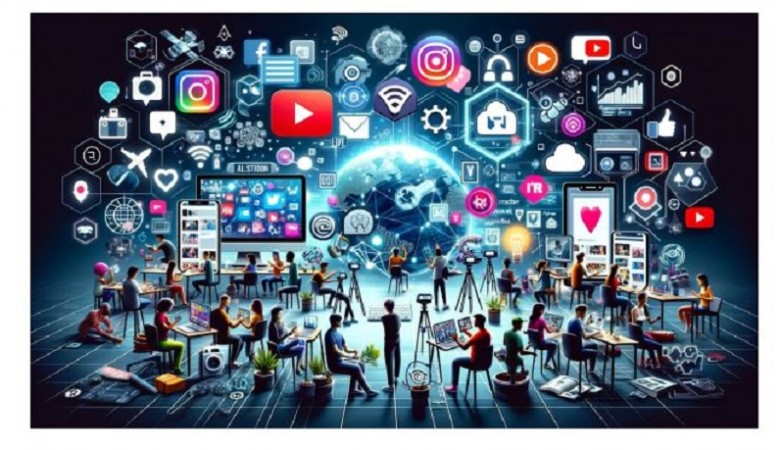
The digital landscape has undergone a seismic shift with the advent of the creator economy, a burgeoning sector where individual content creators leverage platforms to monetize their creativity and engage with audiences. This new economic model has democratized fame and income, allowing millions of creators to turn their passions into lucrative careers. Central to this transformation are the innovative tools and social media platforms.
The creator economy refers to the ecosystem of digital platforms, tools, and marketplaces that enable creators to produce content, reach audiences, and monetize their efforts. This economy has seen exponential growth in recent years, fueled by the increasing popularity of social media, video platforms, and various content-sharing apps. Creators range from influencers and vloggers to artists, musicians, and educators, each finding unique ways to engage with their communities and generate income.
Platforms like YouTube, TikTok, and Instagram have been pivotal in this evolution, providing creators with the means to showcase their work and connect with global audiences. These platforms offer monetization opportunities through ad revenue, brand partnerships, fan contributions, and merchandise sales. As the creator economy continues to expand, the need for robust infrastructure and innovative solutions becomes ever more critical.
The success of the creator economy can be attributed to several key innovations that have empowered creators to thrive. One significant development is the creation of marketplaces that facilitate collaboration between brands and creators. For instance, Instagram’s Creator Marketplace allows brands to discover and collaborate with creators whose audiences align with their marketing objectives. This tool has been a game-changer for many creators, enabling them to secure lucrative brand deals and partnerships that were previously out of reach.
Another critical innovation is the development of branded content partnerships. These initiatives have opened new revenue streams for creators, allowing them to monetize their influence and reach through sponsored content. Tools that support transparent and effective collaborations between brands and creators have empowered a new generation of influencers to thrive in the digital economy.
Among the many talents contributing to these advancements is Shwetal Karade, who has played a significant role in developing products at Instagram (Meta) that support and enhance the creator ecosystem. Her work on the Creator Marketplace and branded content partnerships has provided creators with new avenues to grow their brands and monetize their content effectively. Shwetal's efforts exemplify the kind of innovative thinking that is driving the success of the creator economy.
The contributions of technologists and innovators like Shwetal go beyond the development of new tools. They are also pivotal in fostering an inclusive and supportive creator ecosystem. By championing diversity and inclusion, these leaders ensure that creators from various backgrounds and niches have equal opportunities to succeed. This approach has not only enriched the creator economy with diverse voices and perspectives but also strengthened community bonds and trust among users.
Moreover, the rise of the creator economy has a ripple effect on the broader economy. It has led to the creation of numerous jobs and industries, from digital marketing and content production to influencer management and data analytics. By enabling creators to build their brands and businesses, the tech industry is indirectly contributing to economic growth and job creation on a global scale.
Despite its rapid growth, the creator economy faces several challenges that need to be addressed to ensure its sustainability. Issues such as platform dependency, revenue volatility, and digital burnout are significant concerns for many creators. Platforms and industry leaders must continue to innovate and develop solutions that address these challenges, providing creators with stability and long-term support.
Looking ahead, the future of the creator economy appears promising. With advancements in technology such as augmented reality (AR), virtual reality (VR), and artificial intelligence (AI), creators will have even more tools at their disposal to produce engaging content and interact with their audiences. Additionally, the continued development of new monetization models, such as blockchain-based solutions and decentralized platforms, will further empower creators and diversify their income streams.